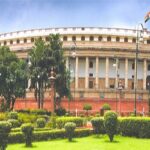Point of View
While the Centre attempts to convince the farmers, the agitated farmers argue that creation of private mandis will further push the farm sector towards privatatisation. Ultimately, the move will finish government markets and other commission agents as well.
The apex court’s recent rejection of a petition seeking enforcement of three controversial agricultural laws that triggered massive protests has emboldened the agitators much to the embarrassment of the government. The Supreme Court has declined to entertain pleas to frame guidelines to bar agitations and ban propaganda on social media against the parliamentary legislation in question. The court, on the other hand, advised the government to put on hold its decision to go ahead with the implementation of farm sector laws “meant to introduce reforms” in the face of a perceived agrarian crisis. But what are the farmers agitated about since November 26 till this day? Apparently, the stalemate weighs heavily upon the Centre’s failure to resolve the crisis thanks to mistrust of farmers over the assurances of the government. Farmers from Punjab, Haryana, Rajasthan and Uttar Pradesh are agitated over three crucial legislations to “benefit” farmers which are at the root of the conflict – The Farmers’ Produce Trade and Commerce (Promotion and Facilitation); The Farmers (Empowerment and Protection) Agreement of Price Assurance; and Farm Services and The Essential Commodities Amendment. While the Centre attempts to convince the farmers that there will be uniform taxes, cess and fees and states can impose fee on private mandis, the agitated farmers argue that already there are state-run market panels and creation of private mandis will further push the farm sector towards privatatisation. Ultimately, the move will finish government markets and other commission agents as well, they apprehend. Ultimately, giant companies and rich traders will grab the markets and procure farm produce and the minimum support price (MSP) mechanism may turn redundant.
Although the Centre has promised that there will be uniform policy of taxes and cess both for government and private markets, the farmers fear the government move would intentionally delay procurement of paddy and render public markets inefficient to benefit private players. Interestingly, the government has offered to give an assurance in writing to continue the MSP system. But the farmers insist that the assurance is not a valid legal document and the new farm laws were brought in to demolish agricultural marketing committees. They have been demanding a comprehensive central legislation on MSP for all crops. But the government has been dragging its feet on the issue for which the farmers have been insisting on repeal of “anti-farmers Acts.” While the Centre reiterates that state laws can regulate traders, the farmers insist that the existing laws have no provision to register or regulate them. “These laws allow all PAN card holders to procure grains from the markets and indulge in hoarding,” the farmers say. This was an attempt to shift the responsibility to state governments on the issue, they add.
Also, a disputes resolution mechanism introduced in the laws to settle land-related transaction disputes between traders and farmers is looked down with suspicion by the farmers. The proposed conciliation board will favour corporations and giant traders to takeover farmers’ land, the agitators apprehend. In a bid to reform the farm sector, the Centre has introduced the Power Bill 2020 which is simply a draft plan open for discussion. The farmers, however, raise an objection to it as they suspect the government intends to take over power sector from the states and remove all sops available to farm sector at the behest of WTO.






































